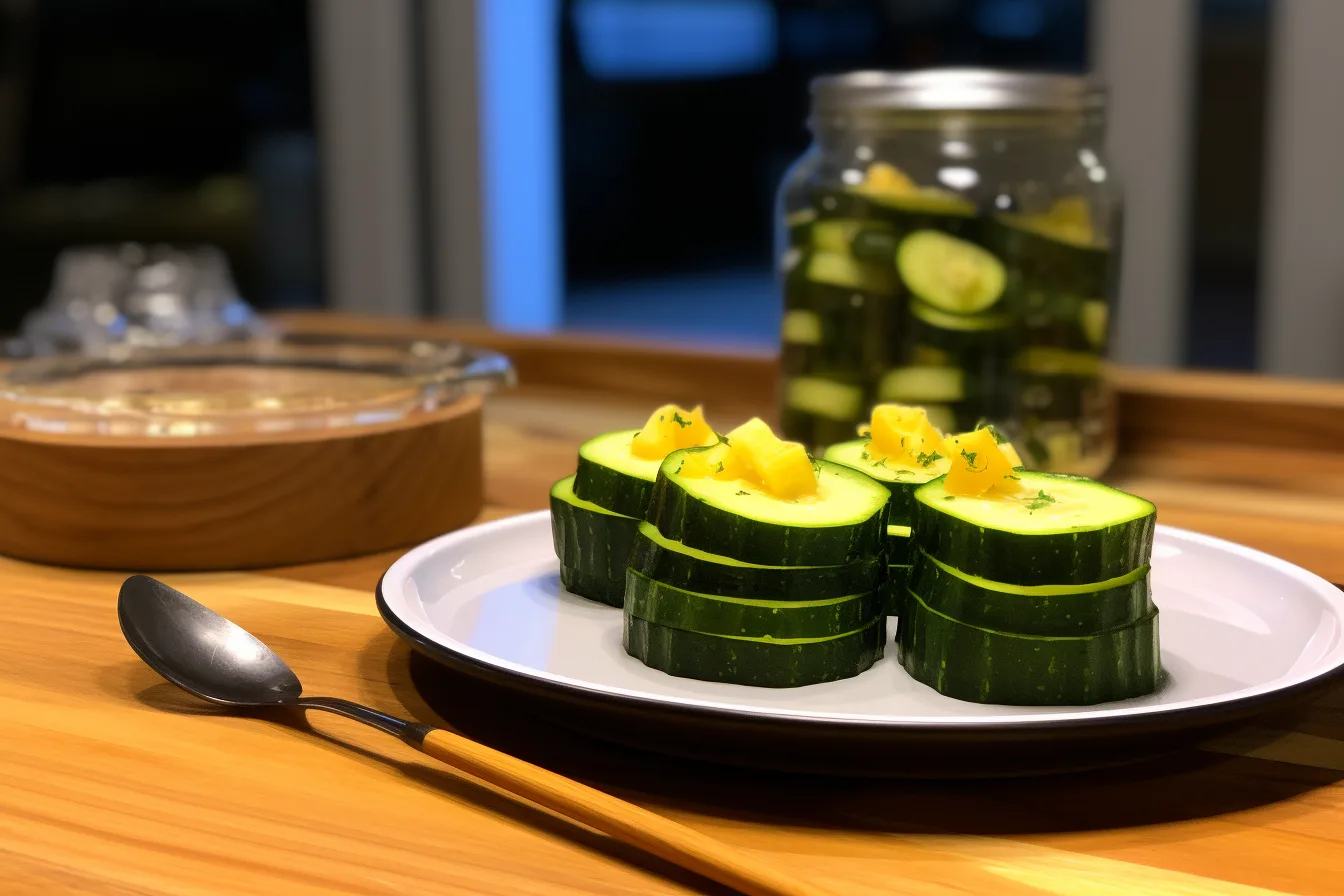If you have an abundance of zucchini, you may be wondering: Is it better to freeze or can zucchini? This is a common question for home gardeners and food preservers looking for the best way to store zucchini for long-term use. The two most effective preservation methods—freezing zucchini and canning zucchini—each have their own advantages and drawbacks.
Freezing zucchini is a quick and simple process that helps retain most of its nutrients. On the other hand, canning zucchini extends its shelf life and does not require freezer space. But is it better to freeze or can zucchini when considering factors like texture, nutritional value, and storage convenience? In this guide, we’ll explore the key differences between freezing vs. canning zucchini to help you determine which method best suits your needs.
Table of Contents
Freezing Zucchini vs. Canning Zucchini: Which is Best?
When deciding whether to freeze or can zucchini, it’s essential to consider factors such as available storage space, time commitment, and the final texture of the zucchini. According to Michigan State University Extension, freezing zucchini is one of the best methods for preserving vitamins and requires minimal equipment.
However, canning zucchini—especially non-pickled varieties—requires a pressure canner due to the vegetable’s low acidity. This means that while canning zucchini requires more effort, it provides a longer shelf life compared to freezing.
For more detailed canning safety tips, see Can Zucchini and Squash Be Canned?
Why Freezing Zucchini is the Best Option for Nutrient Retention
Many food preservation experts agree that freezing zucchini is the superior choice when it comes to retaining nutritional value. Since the canning process involves high heat, essential vitamins—particularly Vitamin C—can degrade. If you want to preserve the most nutrients, freezing zucchini is the way to go.
How to Freeze Zucchini for Long-Term Storage
- Wash the zucchini thoroughly.
- Cut the zucchini into slices, cubes, or shred it if you plan to use it in baking later.
- Blanch the zucchini in boiling water for 2-3 minutes, then immediately transfer it to an ice bath to stop the cooking process.
- Pack the zucchini into freezer-safe bags or containers, leaving some headspace for expansion.
For additional tips on keeping frozen zucchini crisp, check out How to Keep Zucchini Crisp When Canning.
Pros and Cons of Freezing Zucchini for Preservation
Pros:
- Freezing zucchini is easy, quick, and preserves nutrients.
- Requires minimal equipment.
Cons:
- Frozen zucchini may become soft after thawing.
- Takes up valuable freezer space.
Is Canning Zucchini the Best Option for Long-Term Storage?
While freezing zucchini is the quicker and easier option, canning zucchini is ideal for those who want a long-term storage solution that doesn’t require freezer space. However, because zucchini is low in acid, pressure canning zucchini is necessary unless you pickle it. Let’s look at how to safely can zucchini for storage.
Pressure Canning Zucchini for Safe Storage
Since zucchini is a low-acid vegetable, it requires high heat to eliminate bacteria. Pressure canning zucchini is the best method for safe preservation. To properly can zucchini, follow the safety guidelines outlined in Zucchini Squash Relish Recipes for Canning Large Batch.
How to Pickle Zucchini for Water Bath Canning
If you prefer water bath canning, pickling zucchini is a great alternative since vinegar increases its acidity.
Ingredients: Zucchini, vinegar, garlic, salt, and dill.
Instructions: Slice the zucchini, prepare the brine, and pack the zucchini into sterilized jars. Process in a water bath canner.
Pros and Cons of Canning Zucchini for Preservation
Pros:
- Canning zucchini provides long-term storage, with pickled zucchini lasting up to a year.
- Pickling adds a unique and tangy flavor.
Cons:
- Requires more time and equipment, such as a pressure canner.
- Non-pickled canned zucchini may lose its texture and become soft.
FAQs on Freezing or Canning Zucchini
Should You Freeze or Can Zucchini?
Is it better to freeze or can zucchini? The answer depends on your needs. Freezing zucchini is faster, easier, and retains more nutrients. Canning zucchini is ideal for those who prefer pickled flavors or need a long-term storage solution without requiring freezer space.
How Long Does Frozen Zucchini Last?
Properly stored frozen zucchini can last up to 10 months in freezer-safe bags or containers.
Can You Can Zucchini Without a Pressure Canner?
No, unless you pickle the zucchini to raise its acidity, you’ll need a pressure canner to safely can zucchini.
Does Zucchini Lose Nutrients When Frozen or Canned?
Yes, but freezing zucchini preserves more nutrients compared to canning zucchini, which involves high heat that can reduce vitamin content.
Conclusion: Is It Better to Freeze or Can Zucchini?
So, is it better to freeze or can zucchini? For most people, freezing zucchini is the best option. It’s quick, easy, and retains most of the zucchini’s nutrients, texture, and fresh flavor. Plus, frozen zucchini is incredibly versatile and can be used in soups, stir-fries, and baked goods.
However, if you’re looking for a long-term zucchini storage solution that doesn’t require freezer space, canning zucchini is a great alternative. While it takes more effort—especially for non-pickled zucchini, which requires pressure canning—it allows you to store zucchini for months or even years. Pickled zucchini also adds a delicious tangy flavor, making it a fantastic addition to salads and side dishes.
At the end of the day, whether you freeze or can zucchini depends on your storage space, time, and how you plan to use your preserved zucchini. If you want a nutrient-rich, fresh-tasting option, freezing zucchini is the way to go. If you prefer long-term storage and unique flavor variations, canning zucchini might be the better choice for you.
For additional guides on preserving zucchini, check out How to Keep Zucchini Crisp When Canning and Zucchini Squash Relish Recipes.

